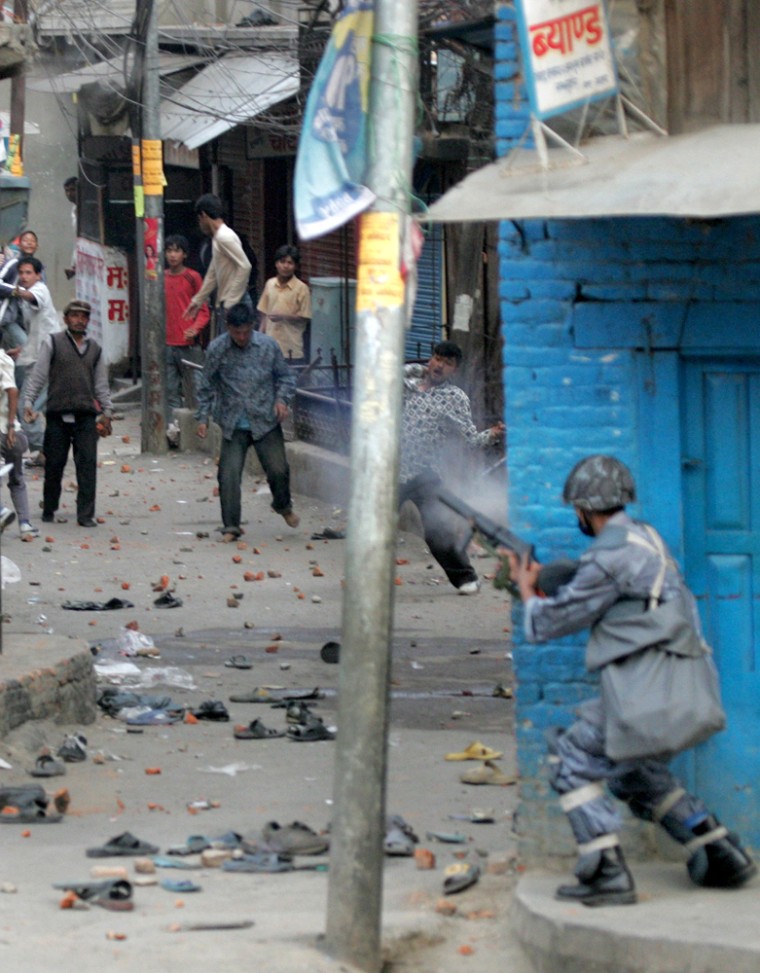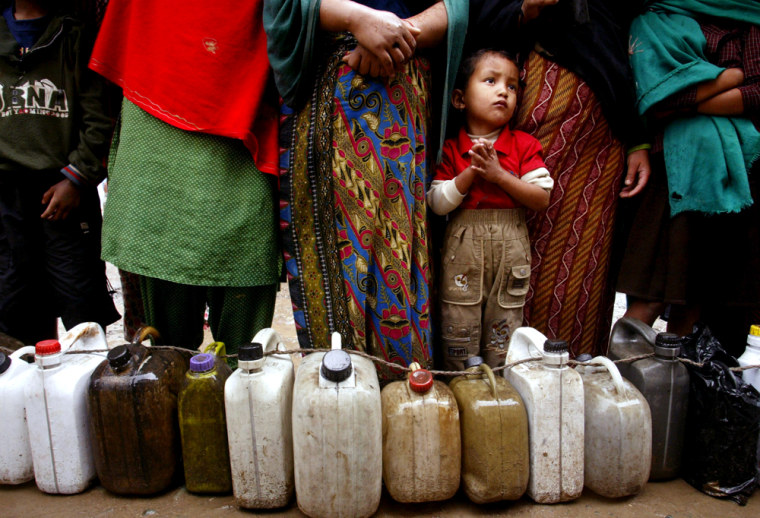Armored military vehicles escorted a convoy carrying badly needed salt, bananas, potatoes and onions to Katmandu on Tuesday — the capital’s first supplies since a general strike and protests against the king emptied Nepal’s highways nearly two weeks ago.
The 23 trucks and buses also brought kerosene and gas to ease shortages as drivers lined up at gas stations and shoppers searched for cooking fuel.
One vegetable dealer, Kumar Maharjan, called the shipment “a light on the horizon,” even if it was just “a drop in the bucket.”
Diplomats worked to defuse the crisis that broke out on April 6 when an opposition alliance launched a general strike to demand King Gyanendra restore democracy, while the country’s communist insurgents pressed their political allies not to cut any deals with the embattled monarch.
Tens of thousands of Nepalis again protested Tuesday across the country, although chilly spring rains kept many people home in this Himalayan kingdom of 27 million people.
Government workers switch sides
Twenty-five Home Ministry employees also walked out of work chanting anti-king slogans in the first sign of government workers publicly defecting. All were arrested along with three journalists covering the protest, an official said on condition of anonymity because of the political climate.
The western town of Nepalgunj saw the day’s biggest demonstration when about 20,000 protesters stormed a monument being built for Gyanendra in the main square, recently named after him.
With the roads between Katmandu and the country’s southern breadbasket nearly empty, the government has even offered truckers $50 — a large sum in this poor country — to break the strike.
But with few takers, it was forced to organize the convoy, which arrived after dark Tuesday. The produce and fuel it was carrying was expected to be available to consumers on Wednesday, news reports said. The convoy also carried hundreds of ordinary people to Katmandu.
King under fire
Gyanendra seized direct power last year, arguing the move was needed to restore political order and crush a Maoist insurgency that has left nearly 13,000 people dead over the past decade.
The opposition’s campaign has led to the worst unrest since Gyanendra’s power grab, with increasing numbers of Nepalese frustrated by intensifying insurgent violence and faltering economy.
The royal government has responded harshly. Police have beaten and arrested thousands of protesters. A fifth demonstrator was fatally shot by security forces Monday.
Still, the protests have gained strength, and in the past two days the king has appeared to be looking for a way out of the crisis. He met with two former prime ministers Monday and leaders of the pro-royal Rastriya Prajatantra Party on Tuesday.
But he has not met with members of the opposition and they have not publicly backed away from their demand for the constitution to be rewritten to limit — or even eliminate — the monarchy.
U.S., India look for a way out
Nepal’s two most important foreign partners — the United States and India — appeared to be trying to mediate an end to the crisis. Both countries have been sharply critical of the king’s power grab and have urged him to compromise with the opposition.
On Tuesday, U.S. Ambassador James Moriarty talked with one of the former prime ministers who met Gyanendra, Surya Bahadur Thapa, and India named a special envoy to hold discussions with the king and the opposition.

The opposition has instead found itself allied with the Maoists, who warned political leaders not to compromise with the king.
“The movement should not be and cannot be ended or stopped,” the rebels said in a statement issued late Monday. “The ongoing movement is not for minor changes in government.”
The backing of the Maoists has helped give the strike teeth — the rebels have a reputation for ruthlessly going after those they consider royal sympathizers.
Maharjan, the vegetable dealer, said that even though he was relieved Katmandu was getting a supply shipment, “we need much more than that to meet the demand of the people” — and lower prices.
That was clear from the rush on what little produce he and his fellow traders had Tuesday morning.
“I bought a bag of spinach ... I paid three times the normal price, but it is worth it,” said Laxmi Ghimire, a housewife shopping with her children. A bag of spinach normally costs about 15 cents.
